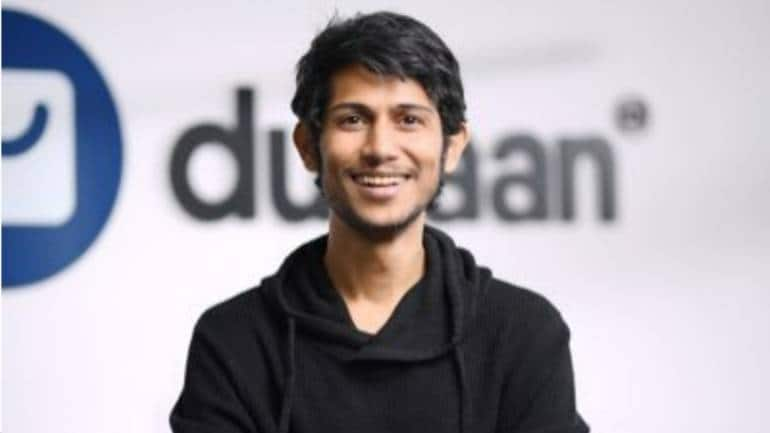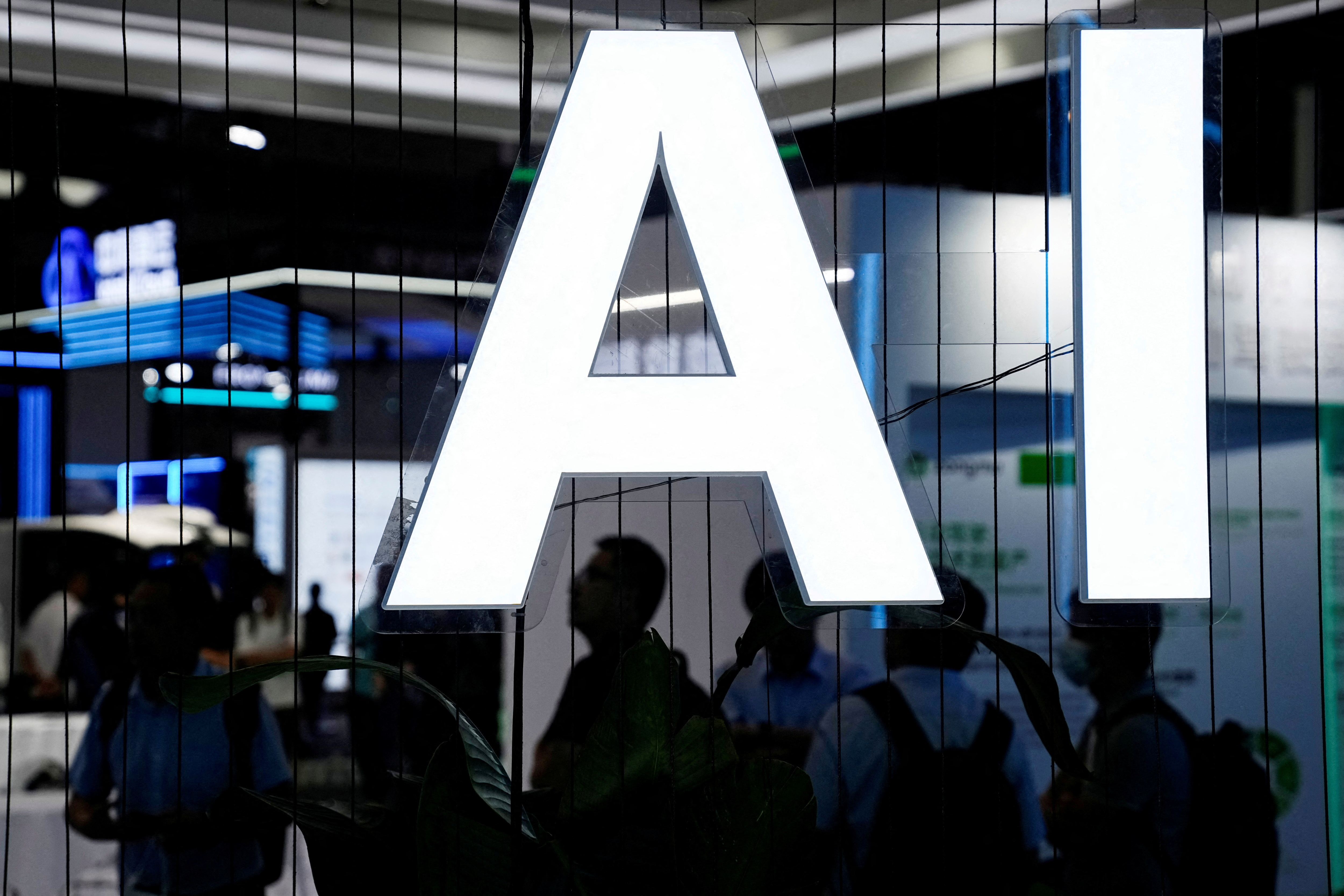China boasts close to 80 AI models from firms like Baidu and Alibaba.

www.reuters.com
China's slow AI roll-out points to its tech sector's new regulatory reality
By
Josh Ye
July 13, 202310:49 AM EDTUpdated 11 hours ago
[1/3]An AI (Artificial Intelligence) sign is seen at the World Artificial Intelligence Conference (WAIC) in Shanghai, China July 6, 2023. REUTERS/Aly Song
- China has cracked down on once free-wheeling tech sector
- AI chatbots not available for public use in China
- Rules being developed for China AI appear onerous-analysts
HONG KONG, July 12 (Reuters) - China has joined the global rush to generative artificial intelligence, boasting
close to 80 AI models from firms like Baidu
(9888.HK) and Alibaba
(9988.HK) and startups attracting almost $14 billion of funding over the last six months.
But unlike in the West, where OpenAI's ChatGPT has attracted more than 100 million monthly users whose inputs help it to learn from to constantly refine and improve its product, no Chinese AI chatbots have been made available to the general public.
It speaks to the new reality in China's technology sector and the effectiveness of Beijing's years-long regulatory crackdown,
culminating with large fines against Ant Group and Tencent last week.
Once known for a cutthroat, "race to market" spirit particularly in the consumer internet sector, companies are slowing down to toe the line and take their cues from Beijing.
The previously free-wheeling industry is now seen to be largely compliant, with firms from Alibaba to Tencent
(0700.HK) making over their businesses, slowing down expansion into new areas and laying off thousands of staff.
New rules Chinese firms have to comply with range from
algorithm vetting to accepting security reviews of data they
want to export.
But while Beijing now has a handle over what it viewed as excesses and misbehaviour that arose from the industry's runaway growth, some experts are beginning to sound the alarm bells on the impact on future competitiveness with Western rivals, given the balance companies are having to strike.
Chinese regulators last week said most of the problems with the country's platform companies had been rectified, moves seen as a signal the crackdown is finally over.
But Henry Gao, a law professor at Singapore Management University, said the tight regulatory environment, now stricter than other countries in many areas, was expected to persist.
"There have been so many what I call 'preemptive regulation' in China in recent years. They definitely stifle the innovation and slow down the ability of Chinese firms to catch up."
BETA TESTING
Industry executives say these challenges are particularly acute in generative AI as global interest in the technology surges following the success of Microsoft-backed
(MSFT.O) ChatGPT and Chinese firms race to catch up with U.S. peers.
While several highly publicised launches have been held in China, from Baidu's Ernie Bot to SenseTime's
(0200.HK) SenseChat, all remain in beta testing and only open to selected users.
In May, Baidu CEO Robin Li said it was
waiting for government approval for Ernie Bot.
"Because the formal regulatory framework has not been established, many Chinese internet companies are unable to conduct large-scale testing on their generative AI products that are either under development or already developed," said Jialong Shi, the head of China internet equity research at Nomura.
Having more users helps ChatGPT refine its model to better account for language patterns like slang and idioms, detect errors, respond to uncommon scenarios and reduce cultural biases in responses, according to the chatbot.
A key motivation behind China's reluctance to release AI chatbots is that Beijing fears uncensored chatbots may start influencing societal views in potentially subversive directions, said Mark Natkin, managing director of research firm Marbridge Consulting.
'HITTING THE BRAKES'
China in April outlined a set of
draft measures for generative AI services that said firms would need to submit security assessments to authorities before launching their products.
Analysts have criticised some of the rules as particularly onerous, such as an obligation for AI service providers to verify the truth and accuracy not just of what the AI models produce but also of the material used to train them.
The measures are expected to be finalised and in place by the end of this year. The Chinese government is also preparing a dedicated AI law but has not provided details.
To be sure, China is seen to be ahead of the regulatory curve as countries globally grapple with establishing guardrails on the wildly popular technology, weighing safety and copyrights while maintaining an environment conducive for innovation.
But Heatherm Huang, co-founder of Hong Kong-based tech company Measurable AI, said he saw this putting Chinese firms at a disadvantage, as U.S. products such as Google's Bard and Microsoft's Bing have gone straight to market.
"It's like putting a speed limit on a race car — it's slowing things down," he said. "While the U.S. is racing ahead with AI, China is hitting the brakes with more rules."
BUSINESS FOCUS
Most of the Chinese tech companies have instead for now focused on finding applications for industrial use, a direction analysts said was in line with Beijing's priorities and a key goal of the new regulatory framework.
Chinese President Xi Jinping has stressed he wants to see more energy put towards "hard" technologies such as semiconductors and industrial AI applications, and breakthroughs that could help China
reduce reliance on Western technology.
Huawei Technologies (HWT.UL) said last week its
Pangu AI model would mostly serve enterprise customers for applications like safety inspections for freight trains and weather prediction.
Baidu said last week that more than 150,000 companies have applied to test Ernie Bot since its launch in March, with over 300 testing it in areas like improving office efficiency, customer service and marketing.
Reporting by Josh Ye; Editing by Brenda Goh and Jamie Freed


/cdn.vox-cdn.com/uploads/chorus_asset/file/24778390/668894138.jpg)
:format(webp)/cdn.vox-cdn.com/uploads/chorus_asset/file/24778390/668894138.jpg)
/cdn.vox-cdn.com/uploads/chorus_asset/file/24016885/STK093_Google_04.jpg)
:format(webp)/cdn.vox-cdn.com/uploads/chorus_asset/file/24016885/STK093_Google_04.jpg)
/cdn.vox-cdn.com/uploads/chorus_asset/file/13292777/acastro_181017_1777_brain_ai_0001.jpg)
:format(webp)/cdn.vox-cdn.com/uploads/chorus_asset/file/13292777/acastro_181017_1777_brain_ai_0001.jpg)








/cloudfront-us-east-2.images.arcpublishing.com/reuters/4BM4EPGWORI2JD3UC2KLGAUNCA.jpg)
